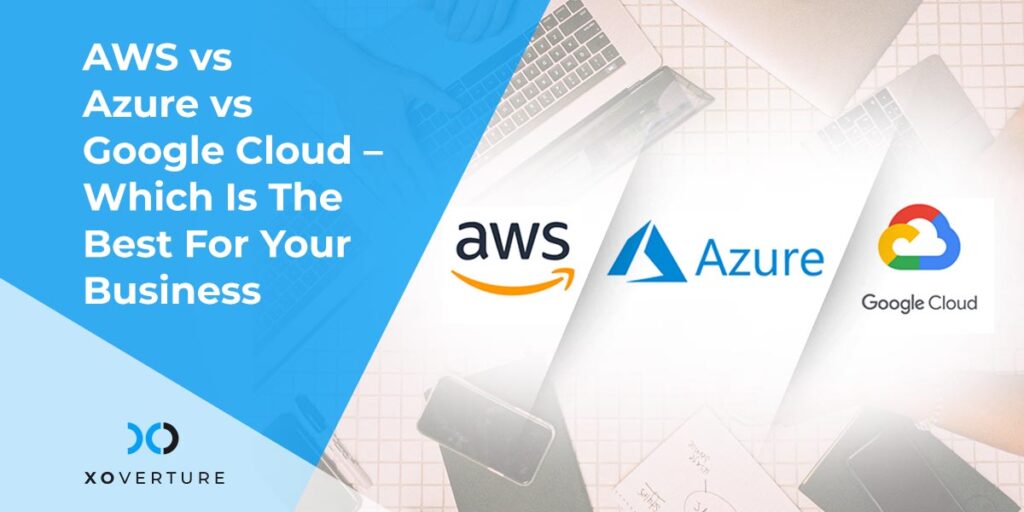Three vendors—AWS, Azure, and GCP—occupy a lion’s share of the cloud deployment market. Which cloud vendor to choose is a significant challenge for technical decision-makers in organizations looking to implement the cloud. To assist you in choosing the ideal cloud solution for your company, we have provided a thorough comparison of the major cloud providers in this blog.
Take a deep breath and relax! As soon as we proceed ahead all your doubts about AWS vs Azure vs Google Cloud and queries will be solved.
Why Choose AWS?
Amazon is the market leader in terms of public cloud services. The most important elements of a successful enterprise are its application services, processing power, and database infrastructure.
According to Gartner, AWS has dominated the cloud IaaS industry for more than a decade. Additionally, it has the most extensive global network of data centers. The most developed, feature-rich, and business-ready service provider is AWS. It possesses advanced techniques for managing a large number of users and data.
Nearly all of the features that the cloud computing sector has to offer are available on Amazon’s cloud platform. You can have quick access to processing power and storage by using their services. Additionally, they offer services for mobile, applications, administration tools, and development tools.
It offers the most advanced computing and storage capabilities on the market. Additionally, they have the widest variety of VM types. Users are able to perform small or large workloads thanks to their VM types. It also offers the most advanced GPU-enabled VM types. This makes it perfect for tasks involving AI and machine learning. AWS offers a wide range of network and data security services. Given the breadth of services it offers, it can serve a wide range of businesses.
Strength
- Most mature, enterprise-ready provider
- Highly flexible
- Highly Secure
- Scalability
- Rapid deployment
- Easy transition is users have an existing digital infrastructure
Weaknesses
- Hybrid options are available but are not a priority
- Longer migration times faced by organizations operating on legacy systems
- Requires advanced technical expertise to implement
Why Choose Google Cloud?
Google Cloud Platform (GCP) entered the cloud market later than AWS and Azure, thus it naturally has a limited range of services and doesn’t have access to as many data centers across the world.
However, it does provide customers with highly specialized services in the big data, machine learning, and analytics fields, along with strong scale, reliable load balancing, and low response times.
Users benefit significantly from Google’s container solution because it created the Kubernetes standard, now used by competitors AWS and Azure.
Customers typically use GCP as a backup vendor in a hybrid solution, but it is gaining popularity with businesses that compete directly with Amazon and cannot use AWS.
It’s vital to note that GCP does not integrate with Microsoft Azure as well because it is primarily open-source and DevOps-centric. All the three cloud platforms cross paths at certain intersections, however, choosing between AWS vs Azure vs Google Cloud can be a tough call.
Strengths
- Excellent integration with other Google services
- Strong data analytics and storage
- Facilitates easy collaboration
- Designed for cloud-native business
- Good portability and open source integration
Weaknesses
- No real control over Virtual Machines
- Limited choice of programming languages
- Complex transition process
- Fewer features
- Less global data centers
Why Choose Azure?
Microsoft released its Azure cloud platform to the general public in 2010. Since only a few businesses provide the same background in business and level of support as Microsoft, Azure is especially relevant for enterprise customers. Azure’s main strength is the hybrid cloud, and the team is working hard to integrate with businesses’ data centers.
However, young businesses can benefit greatly from Azure as well. For example, a year of free cloud computing services, are available to startups — a great deal when you need to develop and test your idea! The company offers a variety of services, including virtual machines, infrastructure as a service (IaaS), storage (Table Service, Blob Service), communication, data management (Azure stream analytics, StorSimple, Cosmos DB), and more.
Strength
- Strong focus on security
- Cost-effective
- Support for open source
- Hybrid cloud
Weaknesses
- Needs considerable management
- Requires platform expertise
- Comparatively costly
- Poor customer service
AWS vs Azure vs Google Cloud – Which One To Choose
The business and technical needs of a company primarily determine the choice of the cloud provider. However, how Cloud Providers present themselves tells a lot about the consumers they are trying to reach.
This is how we can summarize:
- Azure is a good choice for businesses that use Microsoft products and require dependable and efficient cloud solutions.
- With its global network of data centers, AWS offers the widest range of services and has the greatest global presence. However, its pricing strategies favor enterprise-level businesses that look for comprehensive and adaptable solutions.
- When compared to AWS and Azure, Google Cloud seems very basic. Google Cloud is a great option for businesses that rely on web-based products and need straightforward operating principles because of its very flexible pricing models and strong customer service offering.




